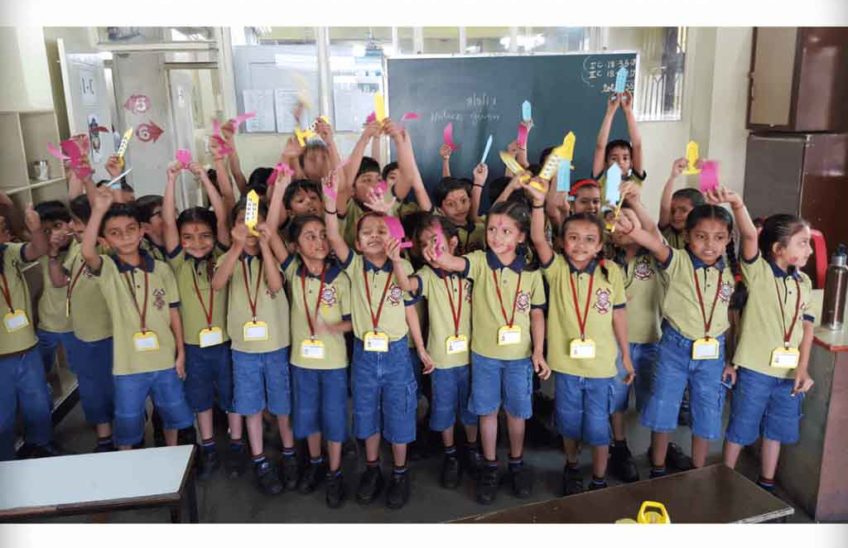
What is Pre-Primary Education?
As the first step in the world of learning, pre-primary education holds special significance. It helps children transition from home to school, gradually moving into formal education. Preschool learning mainly focuses on building skills needed throughout the years of formal education, such as social-emotional skills like self-awareness and personal development skills like time management, inquisitiveness, etc.
Pre-primary education is a type of early childhood education usually provided to children aged 2 to 6 years. Pre-primary education helps children develop the skills they need for success in school. It also helps them learn how to interact with other students and teachers; better to start on the right foot when they enter primary school.
There are many other benefits for children who attend pre-primary education. It helps children to learn about their culture and traditions. It can also teach children how to read, write, and speak in different languages.
What are the challenges faced by the Pre-Primary Education sector?
While the pre-primary sector is rapidly expanding, the value of early childhood education remains a point of contention. The lack of a nationally authorized curriculum is the most pressing issue confronting the sector, which has resulted in it being disorganized, as preschools have become only an academic portal that does not focus on children’s whole development.
According to the National Curriculum Framework for ECCE, Preschool education should be more about observation and experience than formal learning, but it often backfires and reduces preschools to prolonged day-care centers. Moreover, the pre-primary sector has struggled to keep up with the demand for quality education in India.
The lack of adequate infrastructure and resources, poor quality of teachers, and low learning outcomes have all contributed to this. Another issue is that parents are also unaware of the importance of preschool education. Parents in urban areas are more aware of the necessity for preschools, but parents in rural areas are uninformed of the value of early childhood education.
What is the need and importance of Pre-Primary Education?
Pre-primary education is seen as critical for a child’s development because it is the first step toward embracing the world of knowledge and living a healthy and purposeful life. Pre-primary education assists children in becoming more self-reliant and self-assured.
The importance of pre-primary education in India has increased with the changing times. The need for pre-primary education has also been raised due to the growing number of out-of-school children. In India, pre-primary education is crucial because it can help give children the skills they need to succeed in life and make them more competitive.
It also allows them to learn and develop their skills before entering a formal school environment. The Indian government has made great strides in the last few years to improve access to quality education, increase enrollment in elementary schools, and reduce out-of-school children. Nowadays, several private institutions are also operating all over the country, providing quality preschool education.
How can we improve Pre-Primary Education?
There are many ways to improve pre-primary education in India, but the most important thing is to increase the number of schools and teachers. Government intervention is required to train teachers appropriately for facilitating ECCE successfully. They should make sure that teachers have enough training and resources available. The preschool teachers can also upskill by taking online certified courses through government or private platforms.
Since today’s children are digital natives, integrating technology in education is essential in prepping them for adulthood. While technology-based learning devices for this age group can be beneficial, these devices must be appropriate for the children’s skill set and how they will be used for learning and development. Digital tools like Augmented Reality products that provide children with a real-world connection can help them develop holistically.
Frequently Asked Questions
Q. Why is it important for children to go to school early?
A. Early years education has been proven to be one of the most important factors in a child’s future success. It is important for children to go to school early so that they can get the proper education and develop their skill set at an early age.
Q. What are the objectives of pre primary education?
A. The objectives of pre primary education are to help children grow intellectually, socially, emotionally, physically and spiritually by developing their cognitive abilities which will enable them to think critically about their world.
Q. What type of activities do pre-primary schools in India offer?
A. Pre-primary schools in India offer a wide range of activities as it helps nurture the children’s creativity and imagination. These include games, indoor and outdoor activities, and field trips.


